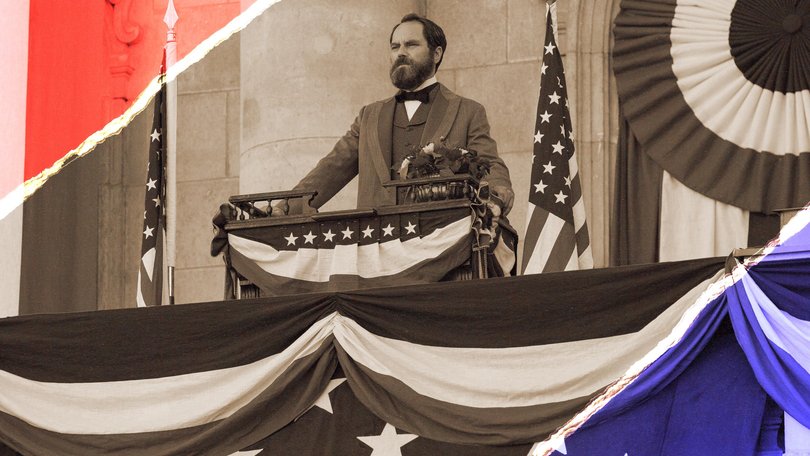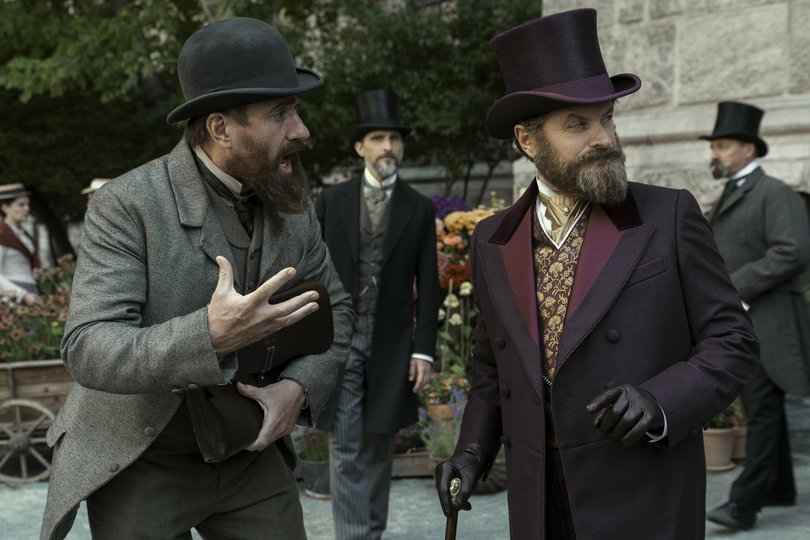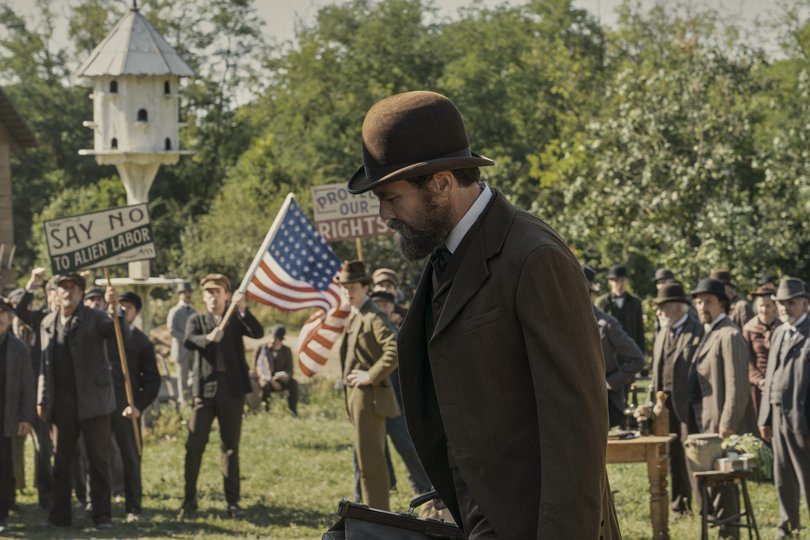Death by Lightning: James Garfield assassination drama triggers questions about American political violence
James Garfield rarely ranks high on the list of great American leaders, but he didn’t get a chance to prove his worth.

There’s a moment right towards the end of historical political drama Death by Lightning when a character pushes against the fourth wall.
Lucretia Garfield, the widow of slain American president James Garfield (that’s not a spoiler, he died in 1881), says to someone that her husband will likely be forgotten, relegated to a piece of trivia to be casually pulled out.
It’s an annoying quirk when historical stories telegraph to the future to connect with a modern audience. But in this instance, it’s forgiven because the actor speaking those words, Betty Gilpin, is brilliant in the scene, but also because that is what happened – and that’s a tragedy.
Sign up to The Nightly's newsletters.
Get the first look at the digital newspaper, curated daily stories and breaking headlines delivered to your inbox.
By continuing you agree to our Terms and Privacy Policy.Garfield has largely been forgotten, rarely cited as one of the great American presidents of history. In a 2022 ranking of US presidents by expert historians, he was listed 27th out of 45 (FYI, Donald Trump’s first term came in third last), and remembered mostly for being assassinated mere months into his term.
Garfield was a former Civil War general who was serving in the US congress when he was unexpectedly picked to be the Republican presidential candidate after a rousing speech at the national convention, and as a compromise after 35 ballots couldn’t decide between the declared frontrunners.

You have to remember that back then, the Republicans were the party that supported federalism and ensuring rights to Black people. It was the party of Abraham Lincoln.
He won the presidential election against Winfield Scott Hancock and set about trying to end “machinery politics”, a corrupt system which rewarded cronyism, reforming the civil service and expanding rights for Black Americans.
He had only started when he was gunned down by Charles Guiteau, a mentally ill grifter who had campaigned for Garfield but spiralled after he was rebuffed for a government posting. He wanted to be a consul to Paris or Vienna.
Death By Lightning (the title was taken from an ominous Garfield quote “assassination can no more be guarded against than death by lightning”) tracks these events across four episodes with Michael Shannon in the role of the president and Matthew Macfadyen as his killer.
The series, which also stars Gilpin, Nick Offerman, Bradley Whitford and Shea Whigham, is affable but middling, although the score by Game of Thrones and Westworld’s Ramin Djawadi is notably good.
But it does at least trigger some fundamentally more interesting questions, even if it doesn’t answer them in its runtime. Why does America have such a pernicious strain of political violence, especially against its leaders?

Garfield was the second president to be assassinated, following Lincoln’s death at the hands of John Wilkes Booth 16 years earlier (there’s a recent thriller series about this called Manhunt that is worth checking out).
Two decades later in 1901, William McKinley was attending an exposition in Buffalo, New York when he was struck by two bullets fired at close range by anarchist Leon Czolgosz, who had lost his job in the Panic of 1893. Czolgosz saw McKinley as the head of a corrupt government and an enemy of the people.
McKinley died a week after the shooting, six months into his second term.
John F. Kennedy’s assassination and aftermath happened in front of TV cameras, and its images are burnt into the collective consciousness as one of the most defining moments of 20th century history.
Ronald Reagan was shot at in 1981 by John Hinckley Jr who had identified with the lead character in Taxi Driver and thought he would impress Jodie Foster with his actions. Reagan survived but his press secretary, James Brady, was permanently disabled in the melee.
Three years after Teddy Roosevelt left office, stalker John Schrank shot the former president in the chest but a metal glasses case slowed the bullet, and Donald Trump was grazed in his right ear by a bullet from a would-be assassin.
There were also numerous foiled attempts against Lincoln, Trump, Franklin D. Roosevelt, Bill Clinton, Herbert Hoover, William Taft, Harry Truman, Richard Nixon, Gerald Ford, Joe Biden, Barack Obama and both Bush presidents.
That’s only the commanders-in-chief, not even accounting for senators, governors, congresspeople and other office holders.
There exists an extremity in American politics that provokes violence with such regularity for a democratic country with a vast amount of wealth.
But everything in the US is extreme, including the wealth gap, the cult of personality it builds around its leaders, its careless firearms regulations, its negligible healthcare system, hyper-capitalism, and, above all, the myth of the American dream.
A country that lies to its citizens that they are entitled to success is setting itself up to fail.
Shows like Death by Lightning may not delve deep enough into the wider social and historical contexts of American political violence, nor can it be expected to have the answers, but it an issue that can’t be ignored.
Death by Lightning is on Netflix

